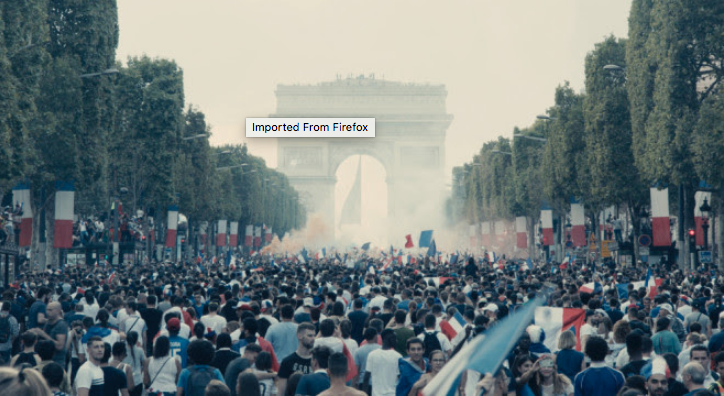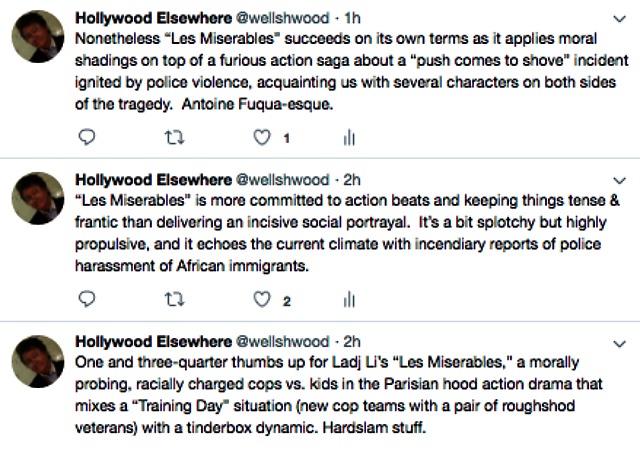The first truly exciting film of the 2019 Cannes Film Festival screened this afternoon — Ladj Ly‘s Les Miserables. Set in the Parisian suburb of Montfermeil, a poor but tightly knit Muslim community, it offers a jolting contemporary echo of the cruelty, harassment and oppression that ignited Victor Hugo’s classic 1862 novel, this time rooted in police brutality and racial animus.
Start to finish Les Miserables is rough, riveting, incendiary — written by Giordano Gederlini and Alexis Manenti and brilliantly shot by Julien Poupard. It generally feels like a rough-and-tumble Antoine Fuqua film, using the basic dynamic of Training Day (but with three cops instead of two) plus a Little Do The Right Thing plus a dash of the anxious urban energy of William Freidkin‘s The French Connection.

But it’s about more than just urban action beats. It’s a racially charged tragedy, injected with sharp social detail and several strong (if somewhat sketchy) characters on both sides of the tale. It’s a bit splotchy and slapdash at times, but is quite the ride.
Part policier and part social-canvas suspenser, Les Miserables is basically about conflicted cops (including one bad apple) under pressure vs. a crew of scrappy, rambunctious, vaguely criminal kids in the ‘hood. It takes the side of Montfermeil natives (Ly was raised there) but also portrays the cops in reasonably fair and humanistic terms.
Closing motto: “There are no such things as bad plants or bad men. There are only bad cultivators.”
The story is about a mischievous Muslim kid named Issa (Issa Perica) who gets himself into hot water by stealing a lion cub from a small local circus. The circus guys angrily threaten some Montfermeil community leaders (not the suit-wearing kind), and soon after the film’s three plainclothes protagonists — the racist and brutish Chris (Alexis Manenti), a casually brusque but decent-hearted Montfermeil native named Gwada (Djibril Zonga) and Stephane (Damien Bonnard), a new transfer with a curtly liberal, mildly compassionate approach to police work — are on the hunt.
They eventually chase down and capture Issa, but then comes the triggering incident: an agitated Gwada fires a flashbang (a non-lethal stun grenade) into the kid’s face. Luckily Issa recovers, but Chris and Gwada go into panic mode when they quickly realize that the incident has been captured by a drone-mounted video camera. Despite Stephane’s objections, the priority becomes finding and destroying the visual evidence.
Things get increasingly hairy and desperate, ultimately leading to a climax…okay, I’ve said enough.
I won’t reveal the finish but it reminded me of the last two or three minutes of Asghar Farhadi‘s A Separation. I for one found it satisfying.

